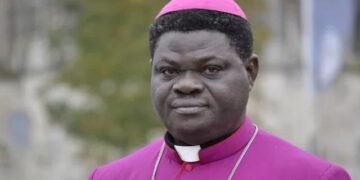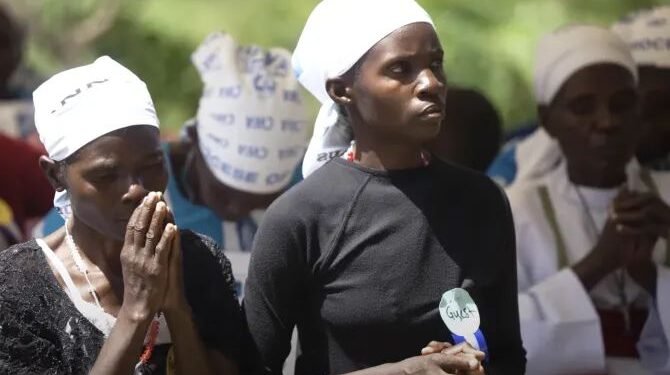By Charles Igwe
In an effort to combat polygamy, one of the significant challenges to evangelization in Kenya, the Catholic Church has established the “St. Monica Widows” apostolate. Archbishop Maurice Muhatia Makumba of Kisumu explained the initiative to EWTN News correspondent Colm Flynn as part of a broader report on the Catholic Church’s state in the country.
As the Archdiocese of Kisumu approaches its 100th anniversary, Archbishop Muhatia Makumba highlighted the rapid growth of faith in Kenya. “Faith is growing very fast in Africa, in Kenya. For example, we have a crisis of vocations,” he noted, emphasizing the abundance of candidates for religious life compared to available positions.
Despite this growth, the Church in Kenya faces numerous challenges, both internal and external. Among these, polygamy stands out as a significant obstacle to the sacrament of marriage and the Gospel’s preaching. Archbishop Muhatia Makumba, whose father had two wives, understands this cultural reality deeply.
In response, the Archdiocese of Kisumu formed the “St. Monica Widows” group to support women who have lost their husbands. Without this support, widows in Kenya often face the traditional practice of being “inherited” by a male relative of their deceased husband, which perpetuates polygamy.
Archbishop Muhatia Makumba explained that inheritance in Kenya typically leads to polygamy, posing a serious challenge that the Church aims to address. The “St. Monica Widows” initiative encourages women to join the group and resist being inherited, despite facing ostracization, rejection, and loss of inheritance from their communities.
Regarding polygamous men who convert to Catholicism, the archbishop stated that while they continue to provide for all family members, they must cease the personal relationship with the additional wives, living only with the first wife.
The “St. Monica Widows” apostolate represents a crucial effort by the Catholic Church in Kenya to uphold the sacrament of marriage and support widows in maintaining their dignity and independence in a challenging cultural context.




















































